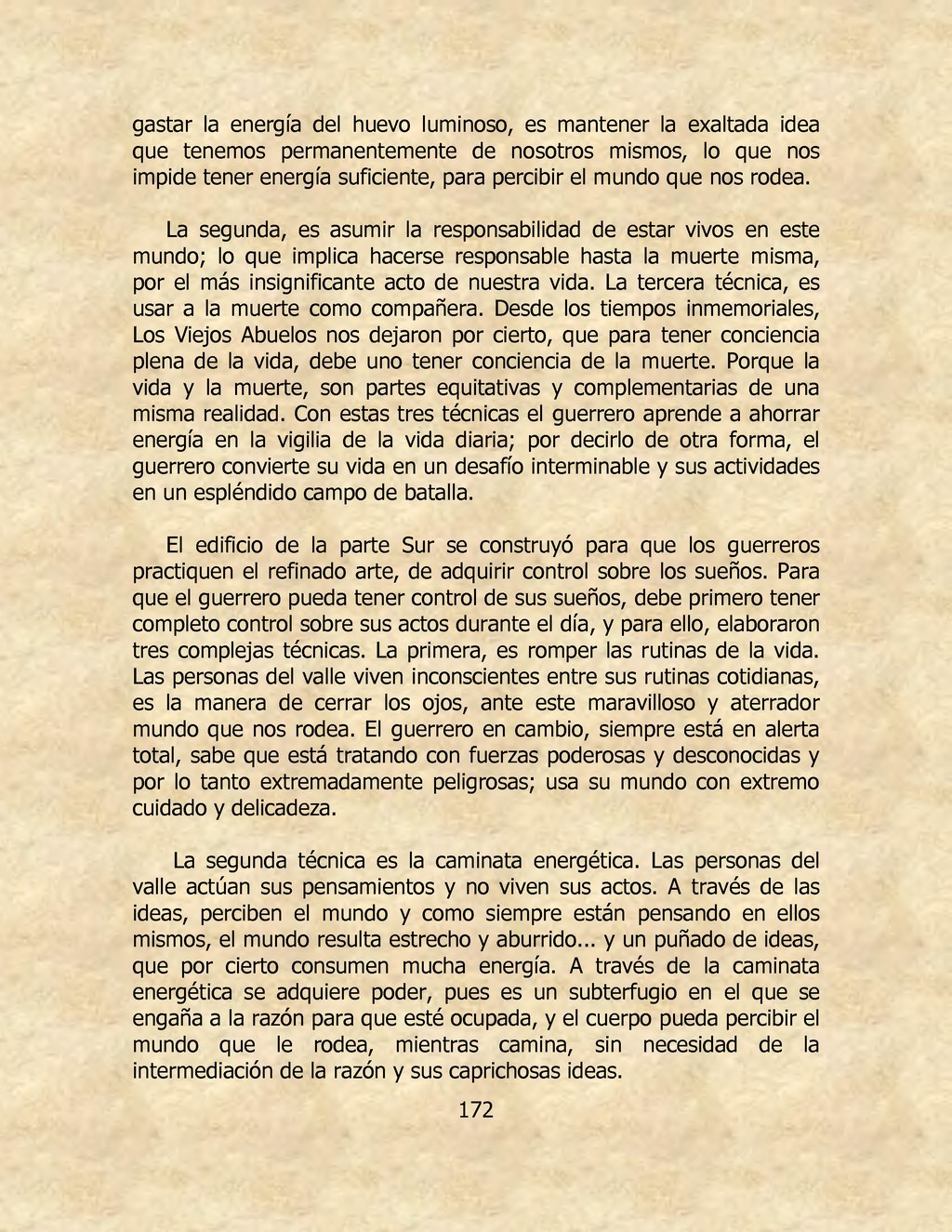consumes the most luminous egg energy is maintaining the exalted idea that we permanently have of ourselves, which prevents us from having sufficient energy to perceive the world around us.
The second entails taking on the responsibility of being alive in this world; which implies becoming responsible until death, over the most insignificant act of our life.
The third technique is to use death as a companion. From immemorial time, the old grandparents left as certain truth, that in order to be fully conscious of life, one must be conscious of death, because life and death are equal and complementing parts of the same reality. With these three techniques the warrior learns to save energy in the daily life vigil; to put it differently, the warrior turns his life into a never-ending challenge and his activities into a splendid battle field.
The building of the southern part was built so that warriors practice refined art, acquire control over dreams. So that the warrior can have dream control, he must first have complete control over his daily actions, and to do so, they developed three complex techniques. The first is to break life routine. The valley people live unconsciously among their daily routines; it is the way how they close their eyes before this wonderful and frightening world around us. The warrior on the other hand, is always totally alert, knows he is dealing with powerful and unknown forces and therefore extremely dangerous; uses his world with extreme caution and delicacy.
The second technique is the energy hike. Valley people act their thoughts and do not live their actions. Through ideas they perceive the world and as they are always thinking of themselves, the world is narrow and boring... and a handful of ideas, which by the way are energy intensive. Through an energy hike power is acquired, because it is a subterfuge that fools reason so that it is occupied, and the body can perceive the world around him, while walking, without the intermediation of reason and his whimsical ideas.
This page was originally published in Spanish, and is translated by Wikisource editors. It does not use the proofread page system traditionally; it is used to verify translation. Proofreading and validation must be done by editors who are fluent in both the original and the translated language. Follow the interwiki link under In other languages to view this page in Spanish. |

